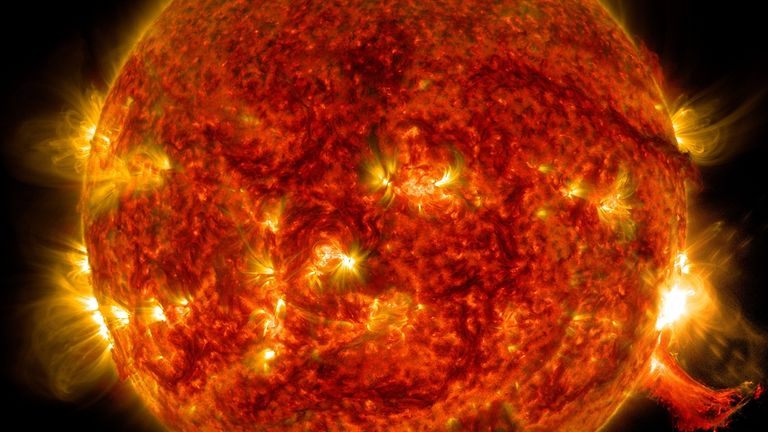Later-stage solar flares could be more disruptive to communication systems than previously thought, according to new research.
While it’s well known the first wave of a solar flare – a sudden burst of energy from the Sun – can knock out GPS signals and trigger global radio blackouts, the secondary emission is less-studied.
A new study now suggests this later phase, known as EUV (extreme ultraviolent), could be just as threatening to the Earth’s satellites, with more energy over a longer period of time.
This means it could have a prolonged impact on a part of the upper atmosphere called the ionosphere, which grows and shrinks depending on the energy it absorbs from the Sun.
Significant changes to the ionosphere – which satellites need to send signals around the planet – can disrupt communication completely.
Corresponding author Dr Susanna Bekker, from the School of Mathematics and Physics at Queen’s University Belfast, said studying the impact of solar flares on the ionosphere is a “significant focus”.
“Studies have indicated that the illuminated part of the Earth’s ionosphere is extremely sensitive to variations in solar radiation fluxes, which can cause failures in technology that people rely on daily,” she said.
“During more powerful events, the effect on the ionosphere is much higher, therefore the late phase can also have a negative impact on the accuracy of navigation systems and the stability of radio communications.”
Recent findings have shown a large proportion of solar flares have an EUV late phase, whose influence is not yet as clear.
Solar flares are classed in relation to how powerful they are and their potential impact on Earth – with an X flare considered the most aggressive.
Researchers looked at data from previous X-class flares to analyse how the ionosphere responded to an EUV late-phase flare.
The findings are published in the The Astrophysical Journal.

